
Hydrocodone is a narcotic pain reliever and is used to ease moderate and severe pain. It should be only used on prescription to avoid risk of forming a habit. The side effects are thinking and reaction impairment. Avoiding driving while under the influence of hydrocodone is advised.
Side effects of hydrocodone
Before taking hydrocodone the doctor should be aware of allergies (including hydrocodone) and conditions patient has. These include asthma, sleep apnea, COPD, history of head injury or brain tumor, kidney or liver disease, low blood pressure, intestinal or stomach disorder, under-active thyroid, history of mental illness, adrenal gland disorder, history of alcohol or drug abuse, low blood pressure.Tell your doctor if the medicine seems to stop working as well in relieving your pain.Hydrocodone is harmful to unborn children and can cause breathing problems or symptoms of addiction or withdrawal in a newborn. It can also pass into breast milk and harm a baby in the nursing period. By notifying the doctor of having a newborn baby, pregnancy or intention of pregnancy, the unwanted side effects can be avoided on time.
Overdose
Symptoms of overdose are sweating, nausea, vomiting, weak pulse, slow heart rate, increased drowsiness, fainting, coma, confusion, pinpoint pupils, blue lips, dark urine, jaundice, clammy and cold skin, muscle weakness, shallow or no breathing at all.If any of the symptoms are noted or there is a possibility of too much medicine has been taken, seeking emergency medical attention is advised. Hydocodone is known to be fatal.Consulting the doctor or pharmacist before using combination of Hydrocodone and certain over the counter medication can prevent unwanted consequences. These medications include allergy, cold or cough medicine, other narcotic painkillers, muscle relaxers, sleeping pills, seizure medication, antidepressants. Avoid taking hydrocodone with alcohol. The doctor should also be notified of use of antidepressants like imipramine (Tofranil, Janimine), clomipramine(Anafranil) and amitriptyline (Etrafon, Elavil), urinary or bladder medications such as oxybutynin (Oxytrol, Ditropan), tolterodine (Detrol) solifenacin (Vesicare), flavoxate (Urispas), darifenacin (Enablex), bronchodilators like tiotropium (Spiriva), ipratropiun (Atrovent), irritable bowel medication such as hyoscyamine (Anaspaz, Levsin, Cystospaz), propantheline (Pro-Banthine), dicyclomine (Bentyl).Also MAO inhibitors such as rasagiline (Azilect), selegiline (Emsam, Edepryl), Tranylcypromine (Pranate), Isocarboxazid (Mrplan), Phenelzine (Nardil), Atropine (i.e. Donnatal), Dimenhydrinate (Dramamine), Benztropine (Cogentin), Glycopyrrolate (Robinul), scopolamine (Transderm-scop), mepenzolate (Cantil), methscopolamine (Pamine). This list of medications that can interact with Hydrocodone to cause negative consequences goes on to almost infinity. This is the reason why the doctor should be detailed on any sort of medications used, whether they are attained over the counter, or prescribed for another purpose. This includes minerals, vitamins and herbal products.


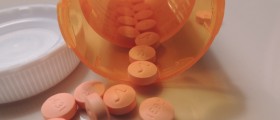
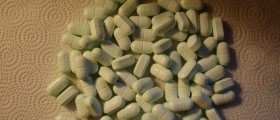
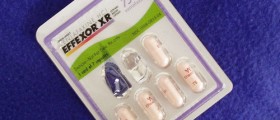

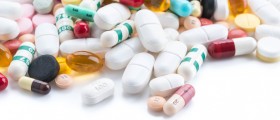


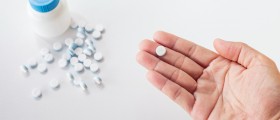
-Help-Treat-Your-Cold-Or-Flu_f_280x120.jpg)






Your thoughts on this
Loading...